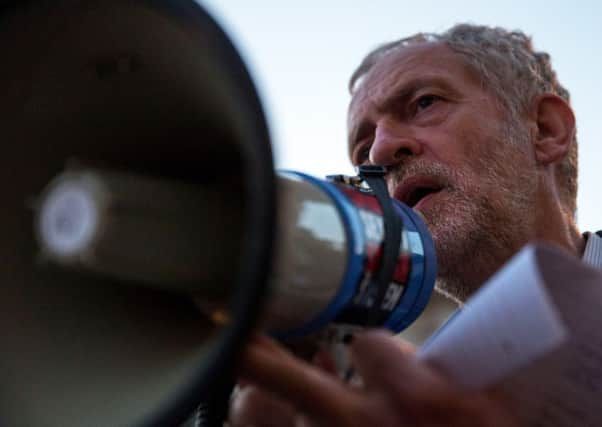David Maddox: Corbyn and SNP will make Osborne smile


It may be a little hasty to predict the outcome of the Labour leadership contest, but if all the signs are correct then Mr Corbyn will, as of Saturday, be leading Her Majesty’s Official Opposition, while Mr Robertson will still be claiming to lead the real Opposition at Westminster.
What will be sure is that the two will be trying to outdo one another on left wing rhetoric, opposing austerity, opposing the renewal of Trident and demanding ever more public spending. They are likely to part company on tax though, unless the SNP suddenly decide to match their spending promises with the logical tax increases they imply.
Advertisement
Hide AdAdvertisement
Hide AdMeanwhile, the leader of the UK government will be smiling and calculating the size of the Tory majority in 2020. The leader being Chancellor George Osborne rather than Prime Minister David Cameron.
It is now widely acknowledged that the chief executive of government business is the Chancellor rather than the Prime Minister, who has taken a chairman-of-the-board type role. If there is a decision to be made it is Osborne who delivers.
So it was the Chancellor who turned up in Faslane to effectively signal full steam ahead on renewing Trident. Then, as the government was stuck in the mire on the refugee crisis, it was Osborne who came out and said the country would take more refugees. Now it is the Chancellor telling MPs that the UK needs to bomb terrorists in Syria.
If we go back to the formation of the government, it is Osborne’s people who now fill key places, whether it is Business Secretary Sajid Javed, Education Secretary Nicky Morgan or deputy chairman Robert Halfon.
It is clear that when Mr Cameron steps down in two or three years time, it is Mr Osborne and not the virtually outcast Boris Johnson who is going to take over.
The jury may still be out on his economic strategy but May’s election victory shows there is no doubt that Osborne’s political strategy is razor sharp. The Faslane trip showed his instinct for highlighting issues which divide his opponents and his new living wage shows he will happily take their best policies. If the future is a Corbyn-led Labour and SNP against an Osborne-led Tories, then the current Chancellor may be running the business of government for a long time to come.